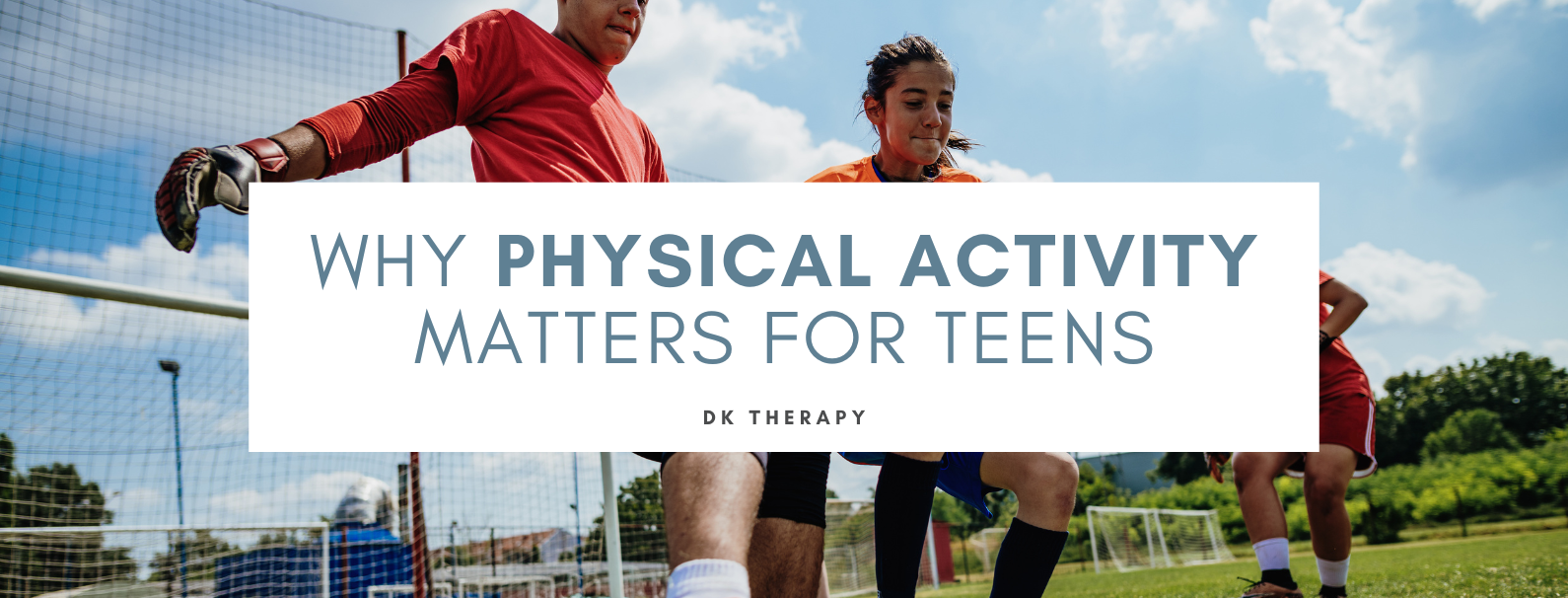
During adolescence, individuals experience a whirlwind of emotional, social, and physical changes. Having so much going on can contribute to stress, anxiety, and even depression, so it’s important to maintain one’s mental health. Incorporating regular exercise into a teen’s routine promotes not only a healthier body but also a more resilient mind.
How Exercise Impacts Teen Mental Health
 Exercise is a natural mood booster. When people engage in physical activity, their bodies release endorphins. These chemical messengers flood the brain with a sort of euphoria and a sense of well-being. Additionally, even brief physical activity can offer teens a break from their hectic routines, helping to reset their mental state and reduce feelings of being overwhelmed.
Exercise is a natural mood booster. When people engage in physical activity, their bodies release endorphins. These chemical messengers flood the brain with a sort of euphoria and a sense of well-being. Additionally, even brief physical activity can offer teens a break from their hectic routines, helping to reset their mental state and reduce feelings of being overwhelmed.
Plus, exercise helps regulate cortisol, which is a hormone associated with stress and weight gain. Exercise also supports the production of neurotransmitters like serotonin and dopamine, which are critical for mood stability.
For teens struggling with anxiety or depressive symptoms, physical activity can provide an outlet for pent-up emotions and a distraction from negative thoughts. Regular exercise also improves sleep quality, which is important for healthy development.
In addition, though, getting enough sleep helps keep emotions regulated and cognitive functions sharp. Improved sleep patterns also enhance energy levels, giving teens more stamina to tackle daily challenges.
Building Confidence and Self-Esteem
Self-esteem can really waver during adolescence, partly due to academic pressures, social comparisons, and physical changes. However, participating in sports or other forms of physical activity can significantly enhance a teen’s self-confidence. Setting new fitness goals, learning a skill, and seeing improvements in strength or endurance can help make teens more aware and appreciative of their accomplishments.
Group activities, such as team sports, also encourage positive social connections, which are a must for maintaining mental health. Belonging to a team or community can provide teens with a sense of purpose, support, and camaraderie. This combination of positive feelings contributes to better self-esteem and less isolation. Further, the social element of exercising with friends often encourages a supportive environment where teens feel understood and motivated.
Reducing Anxiety and Depression
Exercise is a great mental health supplement. Studies show that even moderate physical activity can lead to noticeable improvements in mood. Activities like running, swimming, or something more slow-paced like yoga, can help calm the mind and relieve tension. In addition, being outdoors while exercising can amplify these benefits, as exposure to natural sunlight supports vitamin D production, further improving mood.
For young people experiencing depression, structured exercise routines can create a sense of stability and predictability. The act of moving the body can also inspire a sense of control, which helps teens feel more grounded and capable of managing their mental health.
That said, exercise is not a treatment plan on its own. It’s best used in conjunction with other self-care techniques, and if needed, medical intervention. Parents and guardians can help by encouraging consistent habits and mentioning the benefits of exercise without placing excessive pressure on performance.
Supporting Cognitive Function
Exercise also supports cognitive development, which is incredibly important during one’s teenage years. Physical activity increases healthy blood flow to the brain, which promotes the growth of new brain cells and enhances both memory and learning capabilities. This can be a major plus for teens trying to overcome academic challenges, as better cognitive function translates to improved performance.
Additionally, physical activity sharpens focus and helps improve problem-solving skills. These benefits are especially crucial during high-stress periods like exams, where mental clarity and sharpness are needed most.
By using exercise to boost one’s mood, reduce anxiety and depression, and support cognitive function, young people can lay the foundation for a healthier and more balanced life. Encouraging teens to embrace exercise not only helps them thrive during their teenage years but also equips them with a lifelong strategy for maintaining their mental well-being.
If you’re struggling and you’d like to start seeing an experienced therapist, please reach out to DK Therapy and schedule an appointment with our office.




